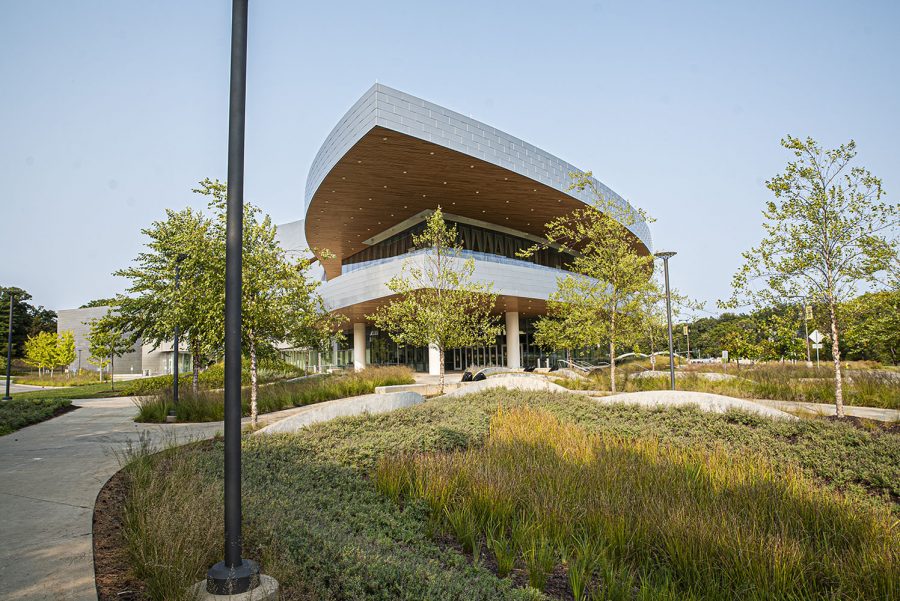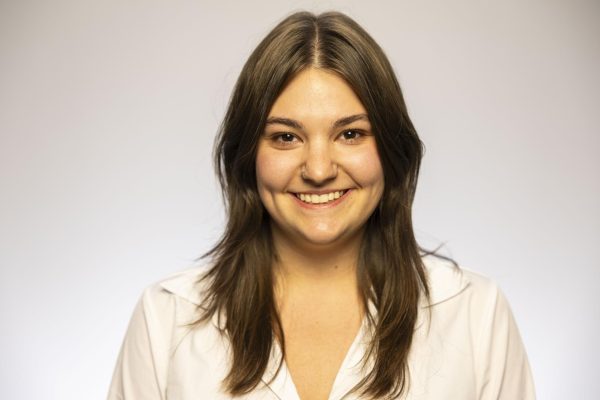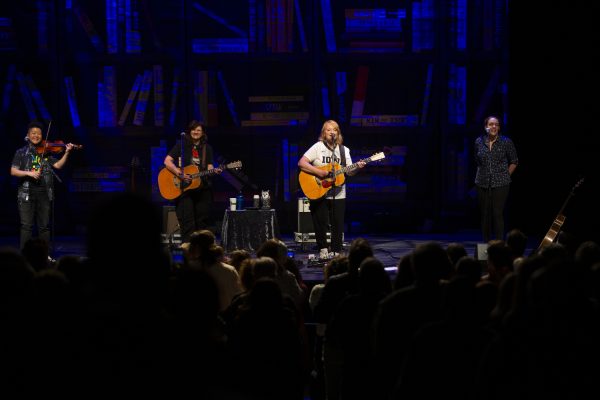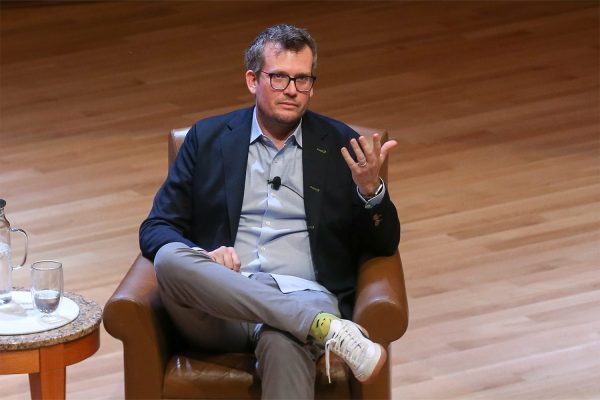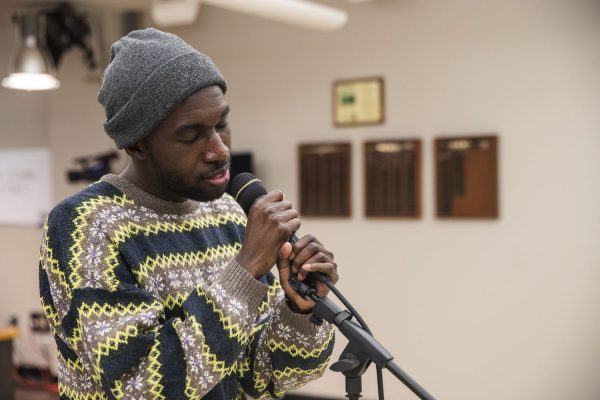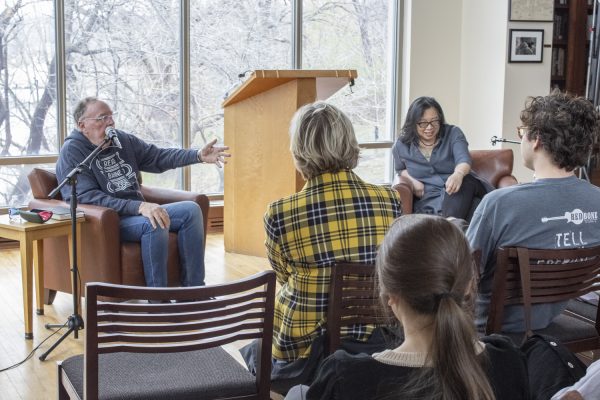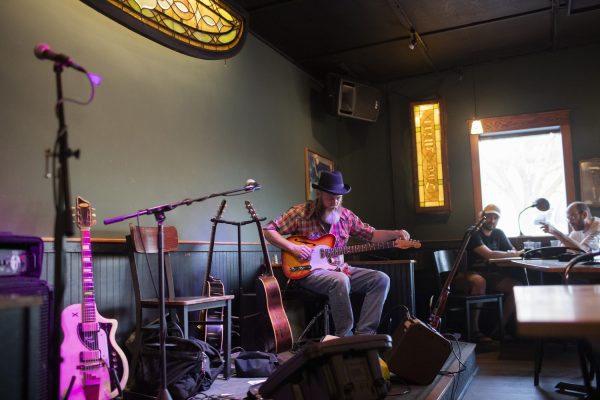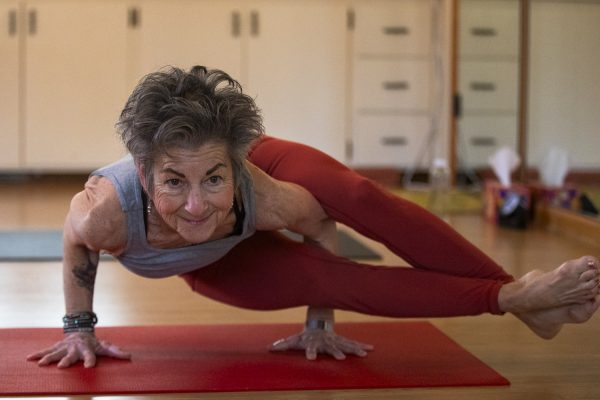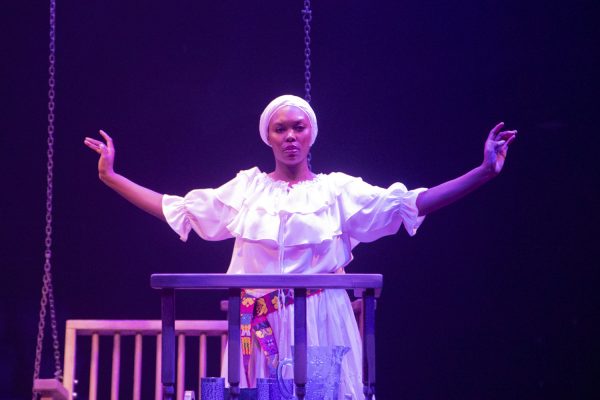Castalian String Quartet brings classical European compositions to Hancher
Through the University of Iowa’s String Quartet Residency Program, the Castalian String Quartet will perform at Hancher.
Hancher Auditorium is seen in Iowa City on Sunday, September 20th, 2020.
February 17, 2022
It takes only four performers from the Castalian String Quartet to make the stage feel full. Balancing two violins, a viola, and a cello, the quartet tames the chaos with skill and practice.
The Castalian String Quartet will perform at Hancher Auditorium on Feb. 20 at 3 p.m. as a part of the University of Iowa String Quartet Residency Program, which brings nationally recognized professional string quartets for performances, master classes, and seminars.
Elizabeth Oakes, who is in charge of the UI String Quartet Residency Program, said she wanted to give students an opportunity to learn from professionals in the field of music. She explained that allowing students to work with critically acclaimed musicians from Europe allows for a direct connection to the genesis of these classical works.
“I built the program with this idea that the artists would be on campus for extended periods of time, so that they can do this kind of deep work with the students,” Oakes said.
Over the past year, the UI Residency Program took an online format because of COVID-19, allowing for groups to perform in person at a later date. The Castalian String Quartet is one such group, having already connected with some of the university’s students.
“It’s exciting because a number of my students had some online experiences with Castalian last year, and we’re going to finally get them on campus this year,” Oakes said.
RELATED: Beatles tribute ‘Pepperland’ to hit Hancher stage
Since its founding in 2011, the Castalian String Quartet has consisted of various members from across Europe, including Finland and the United Kingdom. The group’s name is inspired by the Castalian Spring in the ancient city of Delphi. The Greek myth surrounding the spring says that any who drink from the waters are granted poetic inspiration. The current members are Sini Simonen and Daniel Roberts playing the violin, Ruth Gibson playing the viola, and Christopher Graves on the cello.
The group started out by entering music competitions, first at the national and then international levels, to get their names out into the classical music industry. Eventually, the group was accepted into a British institution based in London called the Young Classical Artists Trust, which helped the quartet grow as a group.
Through their journey to success, Roberts explained that there were unique struggles. Balancing financial stability with the desire to practice and work with his colleagues was challenging, but his motivation to reach his goals helped him keep progressing.
“You’re learning and your eyes are wide,” Roberts said. “You’re dreaming of the possibilities, and that balances all that out.”
Violinist Simonen said that through the time and practice spent with her musical partners, the four of them have formed a deep and personal relationship.
“In a string quartet, do you have a very special kind of bond with your colleagues,” Simonen said. “The cliches that people say is that you’re kind of married to three other people and it’s not really marriage, but it is sort of a very deep, professional, musical, and personal bond.”
RELATED: Hermitage Piano Trio to perform at Hancher Auditorium
The musicians have faced certain struggles since their growth as a group, including fighting to keep their voices authentic and striving to wear their hearts on their sleeves when performing, Roberts and Simonen said.
Some of that authenticity comes with personal identity. Simonen, who grew up in Finland, said she looks forward to playing the piece “Voces intimae,” written by Finnish composer Jean Sibelius, which is reflective of her culture.
“[The piece] is incredibly bound up with Finland’s identities as a country because, you know, it was at a time of fights for independence,” Simonen said. “So much of his music is inspired by ancient Finnish mythology.”
Along with the performance of “Voces intimae,” the quartet will also play Mozart’s “Quartet in D Minor” and Fanny Mendelssohn’s “String Quartet in E-flat Major.” Above all, the group is looking forward to an in-person performance with an audience that is passionate about music.
“You feel like you’ve really had that connection and hopefully given something to the students,” Roberts said. “They undoubtedly give something to us.”



